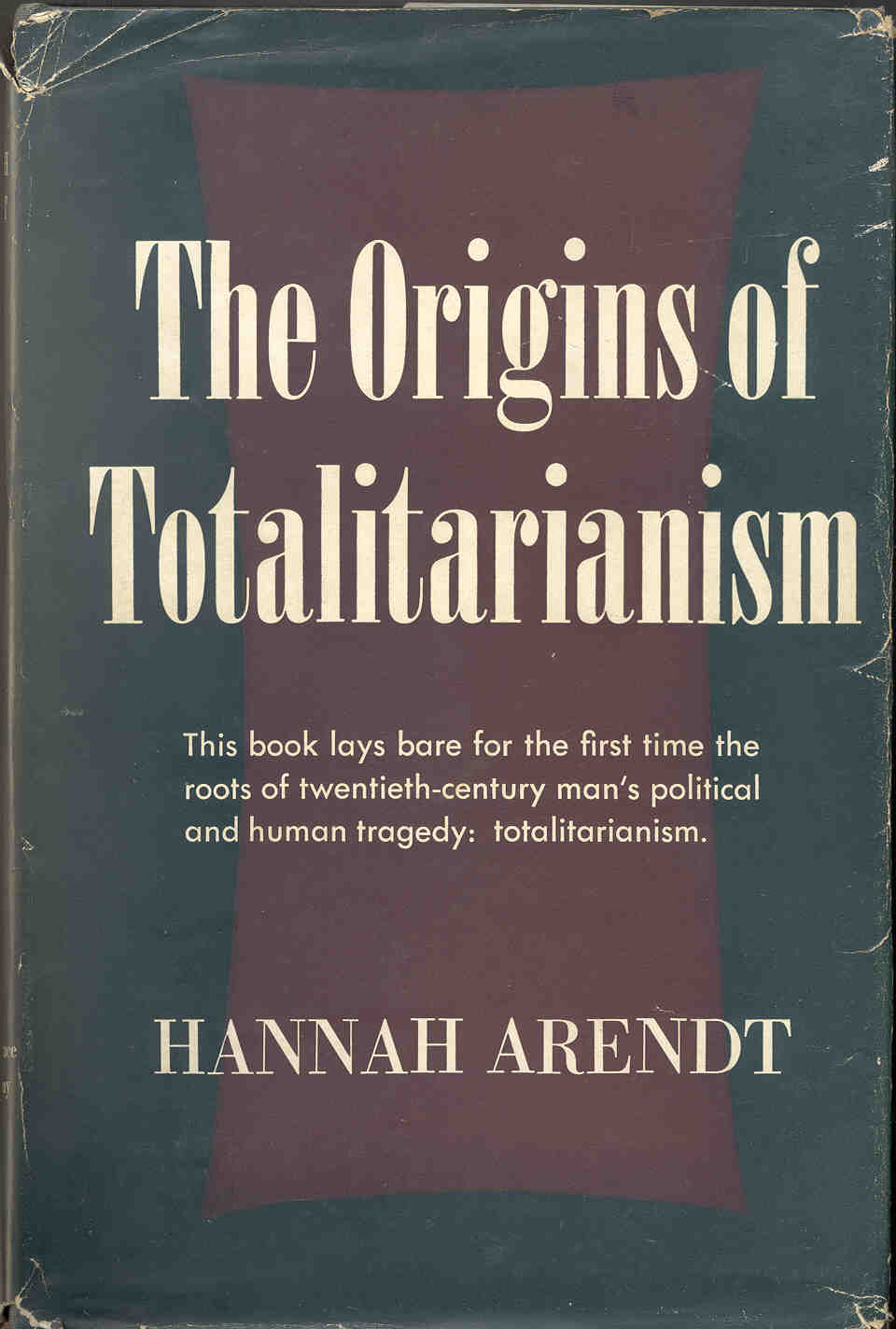The Origins of Totalitarianism
Hannah Arendt
 In the wake of WWII, Hannah Arendt endeavored to understand two regimes that posed a fundamental challenge to Western metaphysics: Stalin’s Soviet Union and Hitler’s Germany. Her work is inaptly named, as she felt that totalitarian regimes were distinct from all preceding forms of tyranny and therefore without precedent in history. She furthermore felt that the tradition of Western metaphysics had exhausted itself – that it could not meaningfully interpret these regimes. This book is a theoretically rich account of two of the most brutal regimes of the last century, and it remains the most successful at providing meaningful guidelines for political praxis today. Perhaps less obviously, it is also a remarkably compelling argument for the value and import of civil society, particularly when read in the context of Arendt’s later works.
In the wake of WWII, Hannah Arendt endeavored to understand two regimes that posed a fundamental challenge to Western metaphysics: Stalin’s Soviet Union and Hitler’s Germany. Her work is inaptly named, as she felt that totalitarian regimes were distinct from all preceding forms of tyranny and therefore without precedent in history. She furthermore felt that the tradition of Western metaphysics had exhausted itself – that it could not meaningfully interpret these regimes. This book is a theoretically rich account of two of the most brutal regimes of the last century, and it remains the most successful at providing meaningful guidelines for political praxis today. Perhaps less obviously, it is also a remarkably compelling argument for the value and import of civil society, particularly when read in the context of Arendt’s later works.
I came into contact with this book through my thesis in literature. While the first two sections – concerning anti-Semitism and imperialism – are occasionally dry and massive in scope, the third section on totalitarianism is inspiring. For me, it provided a way of thinking about and, in fact, justifying the enormous value of civil society and political discourse. In a society that takes these things to be natural and structurally guaranteed, it is tremendously important to realize that they are a disturbingly fungible set of values that can and does collapse.